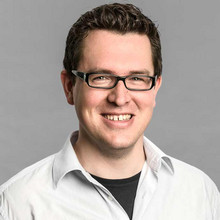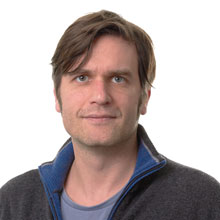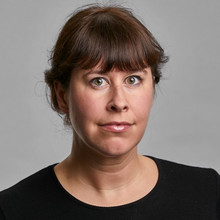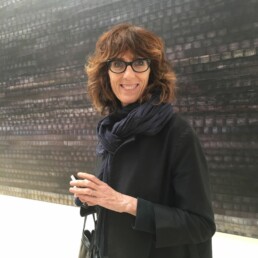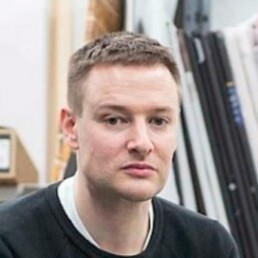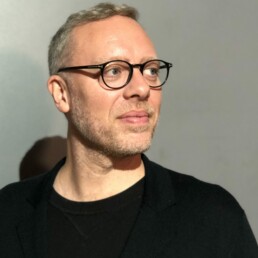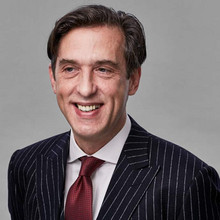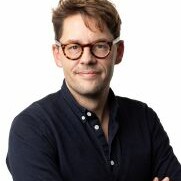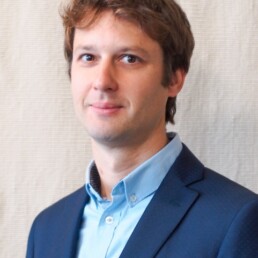Virtual Edition
Don’t be evil.
Technologies of organization and entrepreneurship
European Summer Academy
May 24–29, 2020
The ubiquity of digital technologies and the ‘datafication’ of everyday life correspond to new organizational processes and forms. Human enterprise and organizational practices of all kinds are mediated by pervasive computing, by its codes, devices and infrastructures. The future of organizations and even societies, or so it is claimed time and again, would depend on becoming fit for the ‘digital age’, on grooming ‘digital entrepreneurship’ and on embracing new technologies in organizing work and life. Yet the very organizational forces unleashed by these technologies, and by the organizations behind them, provoke a whole range of concerns and critiques, from ‘surveillance capitalism’ to ‘digital Taylorism’.
More than ever, organization and entrepreneurship are shaped by images and practices of technological connectivity. Yet technologies of organization and entrepreneurship are never neutral: they condition relations of power and control, disruption and emancipation.
The summer academy explores the intimate relations of digital technologies, organization and entrepreneurship. Students and lecturers interrogate and reflect how digital technologies change the way we organize and the way we are organized. They focus on historical trajectories, scrutinize today’s entrepreneurial and organizational contexts of algorithmic management, platform and surveillance economies, and ponder alternative forms of socio-technical organizing.
Course Schedule
Due to the current pandemic, the Summer Academy will adopt a virtual format, bringing together students and faculty from the participating universities in in Venice, Copenhagen, St.Gallen and Lüneburg.
And of course, the theme of ‘technologies of organization and entrepreneurship’ will now very literally affect the summer academy itself. In this sense, the course will become its own object of study.
9:30
Morning check-in
10:00–12:00
Claus Pias: “On the prehistory and presentism of digitization”
12:00–13:00
Lunch
13:00–15:00
Group and individual work phase
15:00–16:00
Lecturers visit groups
21:00
Deadline for the blog post
9:30
Morning check-in
10:00–12:00
Paula Bialski: “Software work and organizing the unforeseeable”
12:00–13:00
Lunch
13:00–15:00
Group and individual work phase
15:00–16:00
Lecturers visit groups
21:00
Deadline for the blog post
9:30
Morning check-in
10:00–12:00
Armin Beverungen: “Surveillance capitalism”
12:00–13:00
Lunch
13:00–15:00
Group and individual work phase
15:00–16:00
Lecturers visit groups
19:00–20:30
“Glitch” with Silvia Gribaudi & Andrea Costanzo Martini
21:00
Deadline for the blog post
9:00–12:00
Massimo Warglien & Costanza Sartoris: “The road not taken: The case of living root bridges”
12:00–13:00
Lunch
13:00–14:00
Simon Denny
15:00–16:00
Lecturers visit groups
21:00
Deadline for the blog post
9:30
Morning check-in
10:00–12:00
Group work
12:00–13:00
Lunch
13:00–16:00
Presentations & Wrap-up
Faculty and Speakers
Armin Beverungen is (since October 2019) Junior Professor for Organisation in Digital Cultures at Leuphana University of Lüneburg, and has held previous research and teaching positions at the University of the West of England, Leuphana University and the University of Siegen. He is a founding co-editor of the journal spheres: Journal for Digital Cultures (www.spheres-journal.org) and the book series Digital Cultures (meson press). During the summer of 2019 he was a fellow at the Center for Advanced Internet Studies in Bochum. His research takes place at the interstices of media and organization studies, and is currently focused on the phenomenon of algorithmic management. His most recent publications include Markets (with Jens Schröter/Phil Mirowski/Edward Nik-Khak, meson press and University of Minnesota Press) and an edited issue of Organization on the theme of “the organizational powers of digital media” (with Lisa Conrad/Timon Beyes).
Timon Beyes is Professor of Sociology of Organisation and Culture at Leuphana University Lüneburg. He is a director of Leuphana University’s Centre for Digital Cultures, and holds a fractional professorship at the Department of Management, Politics and Philosophy, Copenhagen Business School, Denmark. He has a background in Sociology and Management Studies and has done his doctoral and post-doctoral research at the Institute of Sociology and the School of Humanities and Social Sciences, University of St.Gallen, Switzerland. His research focuses on the spaces, technologies and aesthetics of organization in the fields of media culture, art, cities as well as higher education.
Paula Bialski is an Associate Professor for Digital Sociology at the University of St. Gallen and a research fellow at Leuphana University’s Center for Digital Cultures. She is an ethnographer of digital technologies, looking at contexts of usage as well as production, and she frames her research within cultural, social and media theory in general, and science and technology studies in particular. She is currently completing a book project that looks at mediocrity and slowness of corporate software work and its relationship to our digital infrastructures. Her previous book, “Becoming Intimately Mobile,” (Peter Lang: 2012), ethnographically researched hospitality networks (Couchsurfing.com), and ride-sharing websites (Mitfahrgelegenheit.de) in order to understand the relationship between new media, mobility and intimacy, trust, and strangerhood.
Monica Calcagno is associate professor of Design and Innovation management at Ca’ Foscari University of Venice, Department of Management. Co-founder of the laboratory on Management of arts and cultural activities (m.a.c.lab), and coordinator of Master’s degree curriculum in Innovation and marketing. Her research interests refer to the following main topics: innovation from the engineering turn to the rhetoric of creativity, design attitude in management education, user language and narratives in exhibition contexts, archives and the process of organizing, cultural entrepreneurship and social innovation. She teaches courses on Design and innovation management, and Management of cultural organisations. Among her most recent publications, “Interpreting innovation. Design creativity art” published in 2017 and a contribution on “Innovation” in Timon Bayes and Jörg Metelmann (edited by) “The Creativity Complex. A Companion to Contemporary Culture” in 2018.
Simon Denny is a contemporary artist from New Zealand now living in Berlin. His sculptures and installations result from extensive research into the practices and aesthetics of technology products and the companies developing and marketing them. Denny had solo exhibitions at MOMA PS1 and Serpentine Gallery, among other venues. In 2015 he represented New Zealand at the Venice Biennale. Since 2018 he is a professor for time based media at the HFBK Hamburg.
Silvia Gribaudi – born in Turin, her language as an artist and choreographer intersects performing art, dance, and theatre, focusing on the research on body and on the relationship with the audience. Her artistic language could be summarised as the encounter of dance with a raw, empathetic humour. Among other projects, Silvia is also developing a new work, Mon Jour!, co-produced by Torino Festival / Teatro Stabile di Torino (as part of the European project Corpo Links Cluster) and by Teatro Stabile del Veneto, premiering in 2020.
http://www.silviagribaudi.com
Rasmus Johnsen is an associate professor of Humanities and Business School Education at the Department for Management, Politics and Philosophy at Copenhagen Business School. Originally trained in philosophy and literature, he has published broadly on themes such as institutional pathologies—boredom, stress and depression—but also on leadership, pedagogy and ethics. His current research includes an interest in the affective dimension of time and how it is being attended to in organization studies. Right now, he is finishing a book project with the working title A pessimist’s guide to strategy on world literature and strategy. In this book he explores strategy broadly as the human art of creating power in response to a lack of natural instinct—as a symbolic artifice that cushion us from a direct relation to reality.
Andrea Costanzo Martini was born and raised in Italy where he received his first education in contemporary dance and ballet. After few years in Germany where he danced with the Aalto Theater Essen, he moved to Tel Aviv to Join the Batsheva Young Ensemble and later the Batsheva Dance Company.
Trained in both ballet and contemporary technique , since 2007 Andrea is also a Gaga instructor and leads dance workshops around the world.
https://www.andreacostanzomartini.com
Claus Pias is Professor for History and Epistemology of Media at the Institute for Culture and Aesthetics of Digital Media (ICAM) at Leuphana University Lueneburg. He studied Electrical Engineering in Aachen and Art History, German Studies and Philosophy in Bonn and Bochum. In 1993 he became research assistant for History of Architecture at Bauhaus-University Weimar. 1996, he became scientific assistant at the chair of »History and Theory of Artificial Worlds«. In 2002 he was appointed an assistant professor (Junior-Prof) for »Media-Technology and Media-Philosophy« at Ruhr-University Bochum. From 2006 to 2010 he was full professor for »Epistemology and Philosophy of Digital Media« at the University of Vienna. Since 2010 he works and teaches in Lueneburg. He was Senior Fellow at the International Research Institute for Cultural Technologies and Media Philosophy (IKKM) Weimar, the International Research Centre for Cultural Studies (IFK) Vienna, and the Institute for Advanced Study / Wissenschaftskolleg Berlin. Claus Pias also is currently the director of the Institute for Advanced Study in Media Cultures of Computer Simulation (mecs), the Centre for Digital Cultures (CDC) and the Digital Cultures Research Lab (DCRL) at Leuphana University in Lueneburg. In 2015 Claus Pias was a Senior Fellow at the Institute for Advanced Study „Kulturelle Grundlagen von Integration“ Konstanz. Main areas of interest are the media history and epistemology of computer simulations, the history of media studies, and the history and epistemology of cybernetics.
Costanza Sartoris is a Ph.D. student in Management at Ca’ Foscari University, Venice, Italy. With a background on management of cultural institutions and curatorial practices, her current research is on culture and technological development. She is doing field research in the Khasi tribal area of Meghalaya, India.
Maximilian Schellmann, PhD, is currently PostDoc at the Copenhagen Business School, Department for Management, Politics and Philosophy and visiting lecturer at the University St.Gallen His research interests include Migration Studies, Urban Studies, Organization Theory, Cultural Entrepreneurship and Aesthetics. Last publications: ʺThe Politics of Organizing Refugee Campsʺ (2018), CBS [PhD]; ʺStageʺ (2018), in: The Creativity Complex, T. Beyes & J. Metelmann [Eds.]. Transcript.
Florian Schulz is a postdoctoral researcher, psychotherapist and lecturer at the Research Institute for Organizational Psychology at the University of St. Gallen. His interests lie at the interface between psychology and organizational theory. He has taught and conducted research on management coaching, positive work relationships, the impact of networked technologies on work processes as well as on reflexive practices of self-management.
Massimo Warglien is a professor at the Department of Management, Ca’ Foscari University, Venezia and a member of the Center for Humanities and Social Change. He has been publishing both in general science journals (Science, PNAS, Nature: Scientific Reports) and in specialist journals of different fields (Management Science, Organization Science, Journal of Behavioral Decision Making, Theoretical Linguistics, Journal of Semantics, Synthèse, Games and Economic Behavior, Physica A). He has held visiting position in numerous institutions in Europe, US and India.

